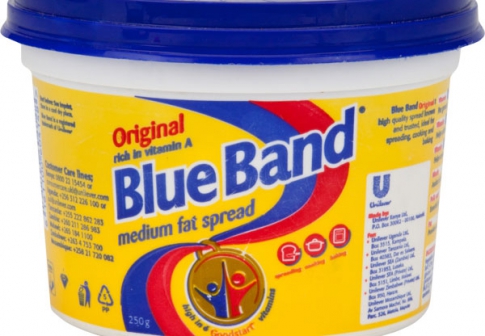
Did you know that a Dutch-British transnational consumer goods company Unilever has already dispensed off its margarine unit, Are you probably wondering what next for Blue Band?
Querying the question ‘What next for Blue Band’ on search engine Google will result into a number of answers, including: “Blue Band sings its last Goodbye.” Only, it is not Blue Band the margarine that is singing, but also Blue Band an Eastern Iowa band.
Eventful journey
Blue Band which has been one of Unilever’s oldest brands is changing homes since 1955 when it was founded.
It has been a long and eventful journey for the margarine. “After a long history in Unilever, we have decided that the future of the spreads business now lies outside the group,” chief executive Paul Polman said in a statement.
Some must have already started questioning the wisdom of Unilever in this decision, but it is the right call.
For a long time, Blue Band has been the chosen spread in most Kenyan households. Initially, it was very popular among the Middle Class families who could afford the luxury of eating buttered bread.
However, in the spirit of the kadogo economy that was taking root in Kenya, Unilever released Blue Band ya Kadogo which was packaged into small sachets of 50 grams. At Sh10, the poor could also afford a taste of Blue Band margarine, which had initially been a preserve for the wealthy.
In the recent times, Unilever Kenya vigorously carried a campaign to have people put Blue Band in ugali, a staple food in most Kenyan households.
Some people said this was a desperate strategy for Unilever to boost the dwindling sales of the margarine.
The campaign, carried through extensive adverts, died its natural death.
However, in other jurisdictions, Unilever’s spreads brands including Dermalogica, Axe and Lynx, Dove, Flora, and Heartbrand had started becoming unpopular as people became more health conscious.
People were not just avoiding margarine and butter, they were also avoiding bread with starch, a fact that saw the revenue stream from Unilever’s margarine reduce.
Saturated fat
Sensing defeat, Unilever also started chanting to the healthy-living mantra, even saying on its website that “spreading soft margarine on bread is much better than spreading butter-which is full of saturated fat- and better than not spreading at all.”
Despite the attack on butter, margarine has in recent times been outclassed by butter.
According to an article by Bloomberg, “in Germany, butter outsells margarine by a 3-to-1 margin, and the gap is widening as the latter failed to grow in 2013, according to consumer data tracker IRI.”
Bloomberg reported that the battering of margarine by butter was so intense that Polman who in 2010 said that butter “kills” started adding butter to some of their margarines.
It remains to be seen whether butter, the main competitor of margarine in the 1980s, will make a comeback in the country too.
The company could have realised they were fighting a losing battle.
The margarine and spreads unit “remains challenged in developed markets and we have now taken the decision to launch a process to either sell or demerge spreads,” the company in a statement after they had decided to sell the unit.
So, will Kenyans also give Blue Band a cold shoulder? Only time will tell.
 The Standard Group Plc is a multi-media organization with investments in media
platforms spanning newspaper print
operations, television, radio broadcasting, digital and online services. The
Standard Group is recognized as a
leading multi-media house in Kenya with a key influence in matters of national and
international interest.
The Standard Group Plc is a multi-media organization with investments in media
platforms spanning newspaper print
operations, television, radio broadcasting, digital and online services. The
Standard Group is recognized as a
leading multi-media house in Kenya with a key influence in matters of national and
international interest.
